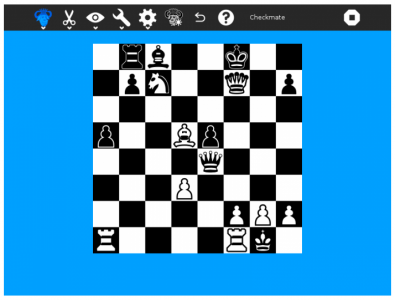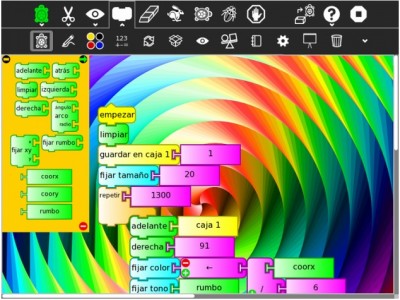At the urging of Reuben Caron, who had been contacted by the OLPC deployment in Armenia, Walter Bender wrote a chess activity for Sugar. It is a Sugar front-end to the gnuchess program, which is a quite sophisticated chess engine for GNU/Linux. The actvitiy, Gnuchess, can be downloaded from the Sugar activity portal and is documented on the Activities/Gnuchess page in the wiki. A few fun features include:
(1)  you can play against the computer, another person on the same computer, or over the network
(2) you can use a generic set of pieces, load in some Sugar-colored ones, or those of your own design
(3) when you play against someone over the net, they will see your artwork and you’ll see their artwork
(4) the computer will offer very good hints to new users
(5) games are recorded and can be played back as an animation or saved in standard chess notation.
Walter also have been making a number of subtle but important changes to Turtle Blocks. Cynthia Solomon (of Logo fame) has been giving him feedback and as a result, Walter thinks the box and action naming is much more streamlined and consistent. Also, the new flow blocks are much easier (and more intuitive) to use.
Check out Version 154 and keep an eye out for Version 156, coming soon.
Also, Claudia, Melissa, Cynthia, and Walter hosted a learning workshop at the OLPC office in Cambridge at which Walter got some feedback on the Portfolio and Bulletin Board activities. He is in the midst of streamlining Portfolio and also enabling comments to be made over the web. (You can get a sneak preview of Version 27). With the learning team, we have been developing a classroom protocol. Once the Portfolio activity gets released, the Bulletin Board activity will follow.
Walter has also been withing with the Fundación Zamora Teran team on the Nutrition activity.
More region-specific foods have been added and a new game: match the food to its food group. A new release will be available soon; a preview is available here.



